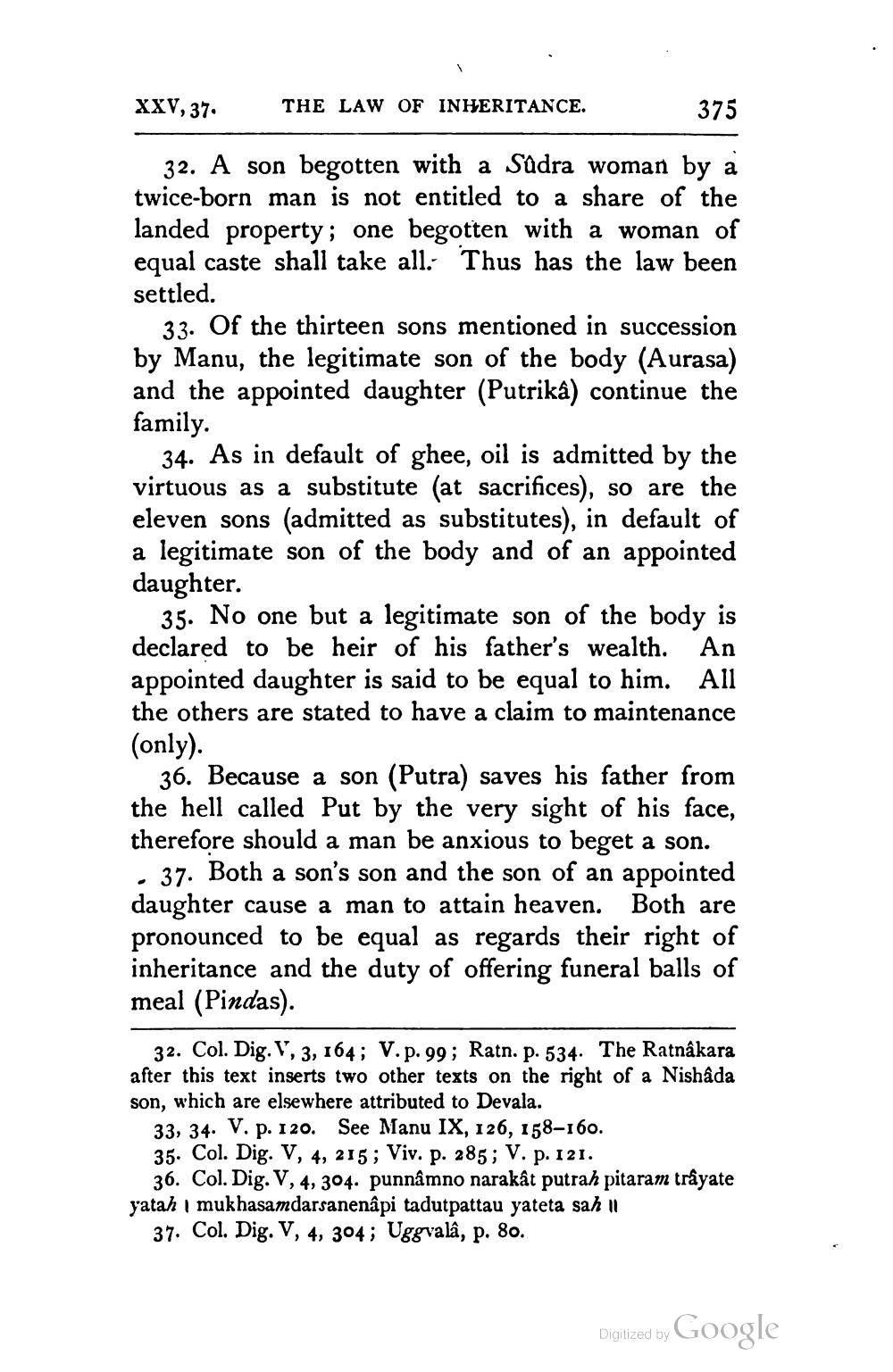________________
XXV, 37.
THE LAW OF INHERITANCE.
375
32. A son begotten with a Sudra woman by a twice-born man is not entitled to a share of the landed property; one begotten with a woman of equal caste shall take all. Thus has the law been settled.
33. Of the thirteen sons mentioned in succession by Manu, the legitimate son of the body (Aurasa) and the appointed daughter (Putrika) continue the family.
34. As in default of ghee, oil is admitted by the virtuous as a substitute (at sacrifices), so are the eleven sons (admitted as substitutes), in default of a legitimate son of the body and of an appointed daughter.
35. No one but a legitimate son of the body is declared to be heir of his father's wealth. An appointed daughter is said to be equal to him. All the others are stated to have a claim to maintenance (only).
36. Because a son (Putra) saves his father from the hell called Put by the very sight of his face, therefore should a man be anxious to beget a son. . 37. Both a son's son and the son of an appointed daughter cause a man to attain heaven. Both are pronounced to be equal as regards their right of inheritance and the duty of offering funeral balls of meal (Pindas).
32. Col. Dig. V, 3, 164; V.p.99; Ratn. p. 534. The Ratnakara after this text inserts two other texts on the right of a Nishada son, which are elsewhere attributed to Devala.
33, 34. V. p. 120. See Manu IX, 126, 158-160. 35. Col. Dig. V, 4, 215; Viv. p. 285; V. p. 121.
36. Col. Dig. V, 4, 304. punnâmno narakåt putrah pitaram trayate yatah I mukhasamdarsanenâpi tadutpattau yateta sah II
37. Col. Dig. V, 4, 304; Uggvalâ, p. 80.
Digitized by Google




